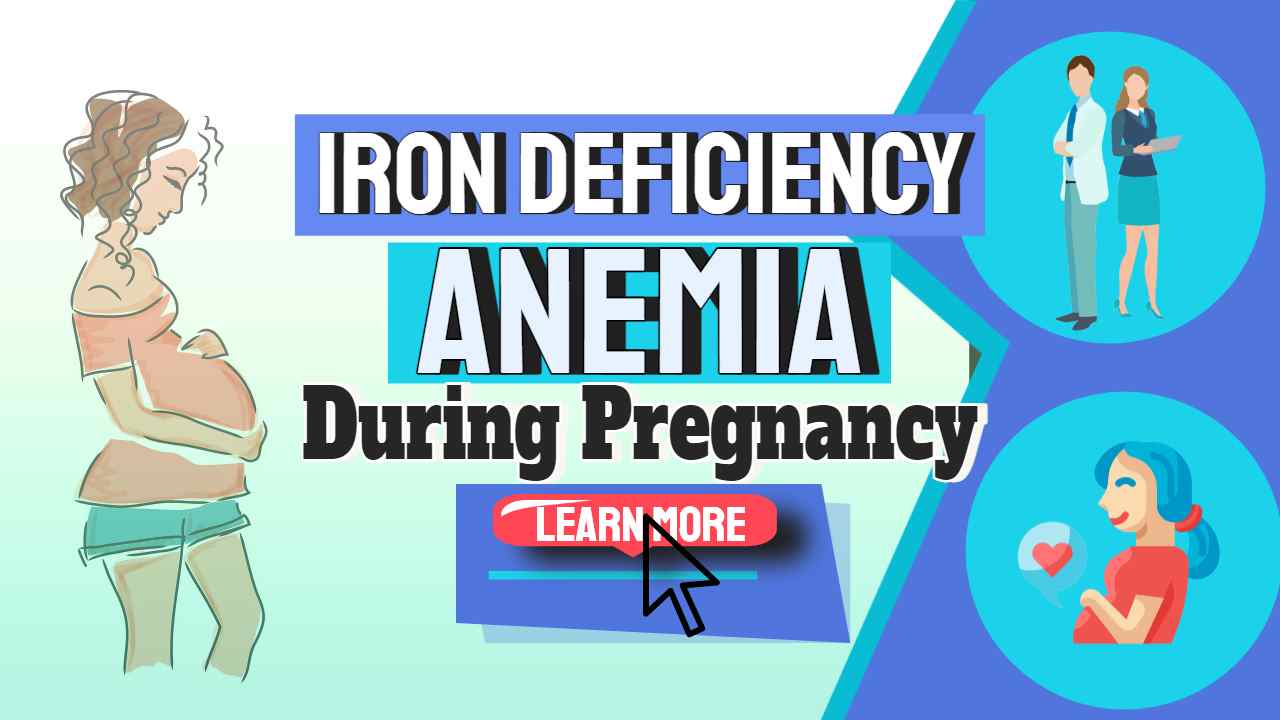On This Page
- How can iron deficiency anemia during pregnancy be prevented and treated?
- How is iron-deficiency anemia during pregnancy treated?
- Why you need iron during pregnancy
- How much iron do pregnant women need?
- Ways to get enough iron in pregnancy
- Do you need iron supplements during pregnancy?
- Iron deficiency during pregnancy
- How much iron is too much?
- Good sources of heme iron:
- Good sources of non-heme iron:
- What are some of the best iron supplements?
- What is dietary iron?
- What does iron do?
- How to take iron supplements
- How to choose an iron supplement
How can iron deficiency anaemia during pregnancy be prevented and treated? In most cases, prenatal vitamins include iron in the ingredient list. Taking an iron-fortified prenatal vitamin can help prevent and cure iron deficiency anaemia in pregnant women.
How is iron-deficiency anemia during pregnancy treated?
According to the American Pregnancy Association, however, between 15% and 25% of U.S. women experience iron deficiency, often known as anemia, during pregnancy.
Because the stakes are minimal, this is the simplest time to get your iron levels back on track while pregnant (not including any people suffering from any severe symptoms of iron deficiency or iron-deficiency anemia).
Anemia can occur if you don't obtain enough iron or you already have a low level of iron. This can make you feel fatigued throughout pregnancy and may raise your risk of early birth, low birth weight, and postpartum depression if the condition is severe.
Why do you need iron during pregnancy
If you're thinking about getting pregnant, you should think about taking a blood booster before you get pregnant and while you're pregnant. It includes the best form of iron as well as considerable levels of methylated folate and coenzyme b12 methylcobalamin, key elements for a healthy pregnancy. This vitamin supplement has all three.
When iron levels are low, pregnant women may experience symptoms such as fatigue, nausea, dizziness, and lightheadedness. When you're pregnant, you need a strong immune system to protect you from infections that are frequent during your pregnancy.
Folic acid and iron requirements increase during pregnancy. This is the reason: Folic acid has been shown to reduce the risk of neural tube abnormalities in pregnant women. These birth disorders affect the brain and spinal cord of the foetus.
How much iron do pregnant women need?
Iron deficiency anaemia is more common among menstrual women, teenagers and pregnant women, as well as athletes and recent blood donors. It is generally safe for all of these groups to take iron supplements.
Pregnant women should strive for an iron intake of 27 milligrammes per day. Only 4 mg of this is taken up by the body after it leaves the digestive tract.
Anemia in pregnant women can be caused by a deficiency in iron, which raises the possibility of problems during delivery. Low birth weight and possibly delayed growth and development later in life are also possible side effects for mothers who smoke.
Ways to get enough iron in pregnancy
As your pregnancy progresses, consider tasty and convenient methods to get more iron into your diet that you can incorporate into your regular meals and snacks.
After the third month of pregnancy, doctors frequently prescribe taking iron supplements. If this is the case, notify your doctor right away so that he or she can monitor your iron and haemoglobin levels at frequent checkups and let you know if and when you need to start taking iron supplements while pregnant.
Do you need iron supplements during pregnancy?
Before taking an iron supplement, make an appointment with your doctor to have your iron levels checked. This will help guarantee you get the nutrients you need. There are several negative health implications of taking iron supplements that aren't really essential. These might even include stunted growth in children and unborn children as the worst scenario.
Anemia in the first or second trimester of pregnancy (up to 28 weeks gestation) is best treated with dietary changes and oral iron supplements for women who have mild to moderate anaemia.
A healthy pregnant woman should receive iron supplements to ensure that she has enough iron in her system to meet her body's increased requirement for the mineral during her pregnancy.
Iron deficiency during pregnancy
Red blood cell production increases in the second part of pregnancy to meet the needs of both you and your unborn child. In every red blood cell, iron serves as the molecular building block. Because your body is unable to synthesise iron, you must get it from the food you eat.
A lack of iron for women who suffer from anaemia during pregnancy may experience fatigue as well as weakness.
There's a higher chance that you'll get iron-deficiency anaemia when pregnant, which is a disease in which your body doesn't have enough healthy red blood cells to transport enough oxygen to the tissues throughout your body.
Haemoglobin, a protein found in red blood cells that delivers oxygen to your tissues, is made in your body using iron. Pregnancy necessitates consuming double the amount of iron that nonpregnant women do. This iron is required by your body in order to produce more blood, which will in turn deliver oxygen to your unborn child. You might get iron-deficiency anaemia if you don't have adequate iron reserves or don't acquire enough iron while you're pregnant, according to the Mayo Clinic.
It is exceedingly common to suffer from iron deficiency anaemia, especially in underdeveloped countries, and the condition has now become a global epidemic. One of the most common causes of anaemia in newborns and young children is a lack of iron in the mother during pregnancy. Many women fail to get the recommended amount of iron during pregnancy. Maternal iron shortage and iron deficiency anaemia have been linked to lower IQ in babies and young children.
In underdeveloped countries, up to 52% of pregnant women are at risk.
Anemia in the infant increases the likelihood of later iron deficiency anaemia due to lower iron reserves. Because of low iron reserves, prematurity and early weaning from nursing raise the risk even further.
How much iron is too much?
Although it may seem unlikely, taking extremely large quantities of iron may be deadly, especially if done by a kid. For this reason, keep iron supplements out of the hands of children at all times.
With a well-balanced diet, most individuals who aren't pregnant should have no problem getting the iron they need. If you use iron supplements, be careful not to take too much.
Taking iron supplements in doses of 17mg or less per day is unlikely to have any negative effects. However, if your doctor says to continue taking a greater amount, do so.
Toxic levels of iron can be acquired over years by taking excessive amounts of iron supplements or as a result of a single overdose. As little as 10 to 20 mg/kg of iron can trigger poisoning symptoms in certain people. More than 40 mg/kg of this drug is considered toxic, and dosages up to 60 mg/kg are considered deadly.
The gastrointestinal system might be harmed by consuming too much iron. Nausea, vomiting, diarrhoea, and stomach discomfort are all signs of iron poisoning. Iron may build up in the body's organs over time, resulting in liver or brain damage that is deadly.
Good sources of heme iron
Heme iron and non-heme iron are the two forms of iron. Methyl iron, which is present solely in muscle and blood, is called heme iron.
The only foods that contain heme iron are animal products such as meat and poultry, as well as fish and lean muscle.
Heme iron is more readily absorbed by the body than non-heme iron. So, some vegans and vegetarians may find it difficult to consume enough iron each day.
It's utilised in the production of red blood cells, which are responsible for transporting oxygen throughout the body. It also helps with cognitive function, energy metabolism, and red blood cell synthesis.
Good sources of non-heme iron
Plant-based meals are rich in non-heme iron. This kind of iron is abundant in dried fruits like apricots and raisins.
Non-heme iron has for many years been fortified into foods using the additive method. Every day, Americans eat a wide range of iron-fortified foods. Bread, cereals, and infant formula all fall within this category.
What are some of the best iron supplements?
“Slow Fe Iron Tablets” on Amazon, for example, have a longer half-life and hence are less likely to cause negative effects in the gut.
Heme and non-heme iron are both found in Feosol Bifera Iron Caplets from Amazon, which aids absorption while causing the fewest negative effects in the digestive system.
Vegans might choose the “MegaFood Blood Builder Minis,” which contain 25 milligrammes of iron and vitamin C to help with absorption per serving of two tablets.
New Chapter Iron Complex Tablets contain 9 milligrammes of whole food fermented ferrous fumarate iron per tablet, together with potent probiotics in the form of lactic acid bacteria, for those seeking an organic option. These, too, should help to keep stomach issues at bay.
What is dietary iron?
Iron insufficiency can be caused by a variety of circumstances, including a diet lacking in iron-rich foods, an insufficient intake, and a broad range of bioavailability (due to the presence of dietary iron absorption inhibitors).
Because children develop so quickly at this age, they have significant iron needs. This, along with a diet that isn't very diverse, leads to a diet deficient in iron-rich foods.
What does iron do?
Many individuals are curious about the health benefits of iron. As a result of iron, your body may move in unison as a result of the transmission of nerve signals. If you don't give your body enough iron, you'll end up with a variety of health issues, including anemia. Continue reading to learn more about the functions of iron and how to maintain a healthy iron intake balance.
Iron is a vital mineral because it helps oxygen get to all the cells in the body. Iron is required for the cell cycle process of mitosis. When cells divide, additional identical ones are created, and these new cells all have the same number of chromosomes as the originals.
Hemoglobin, a protein found in red blood cells, gives them their red hue. Iron is a key component of hemoglobin. The iron in your blood helps to transport oxygen from your lungs to your tissues and organs.
If the iron in haemoglobin is used up, when you don't get enough iron, your body won't be able to make enough oxygen-carrying red blood cells.
How to take iron supplements
A low haemoglobin level means you require iron supplements if you've depleted your resources. It's not only about providing nutrition for two people while you're pregnant; your blood supply expands to accommodate the additional demand.
Oral iron supplements should be explained to women so that they know how to take them appropriately. This should be taken with water or a vitamin C source on an empty stomach.
How to choose an iron supplement
Make an effort to learn about the many kinds of iron supplements that are available. Iron is available in pill, capsule, or liquid form. You can also take an iron supplement that releases iron slowly over time, such as a once-daily tablet. Most iron supplements, with the exception of newborn drops and specialised supplements, are available over the counter.
Make sure the supplement has enough elemental iron in it. The amount of elemental iron should be considered rather than overall strength (or mass). The quantity of iron in your body that can be absorbed is called the elemental iron content.
Keep in mind that the iron content may be listed under any one of three names: ferrous sulphate, ferrous fumarate, or ferrous gluconate, depending on where you purchase the product. Iron sulphate or fumarate concentrations of mg may be used to measure elemental iron levels. The ferrous fumarate has the most elemental iron of the three (around 33%).
To get the most bang for your buck, or elemental iron, in this case, you want a supplement that is also convenient to use and free of adverse effects.
If you've been diagnosed with anemia, your doctor will likely give you a prescription iron supplement. You can also take over-the-counter iron supplements, but it's important to make sure that you choose the right type.
You may also find the following article useful https://totalypregnant.com/iron-supplement-pregnancy/
Disclaimer: This article is for entertainment only. It is not advice. Always seek medical advice first.






No responses yet